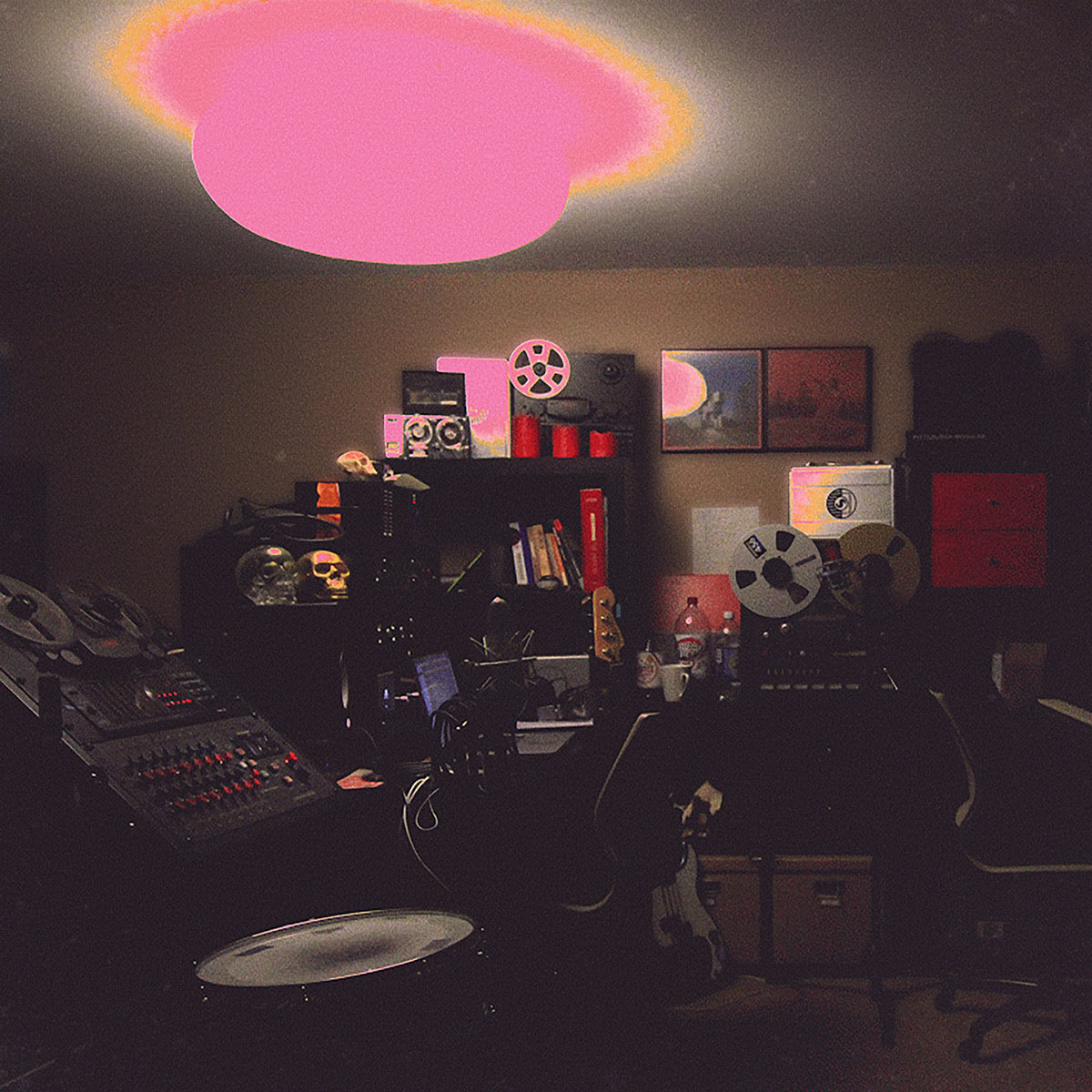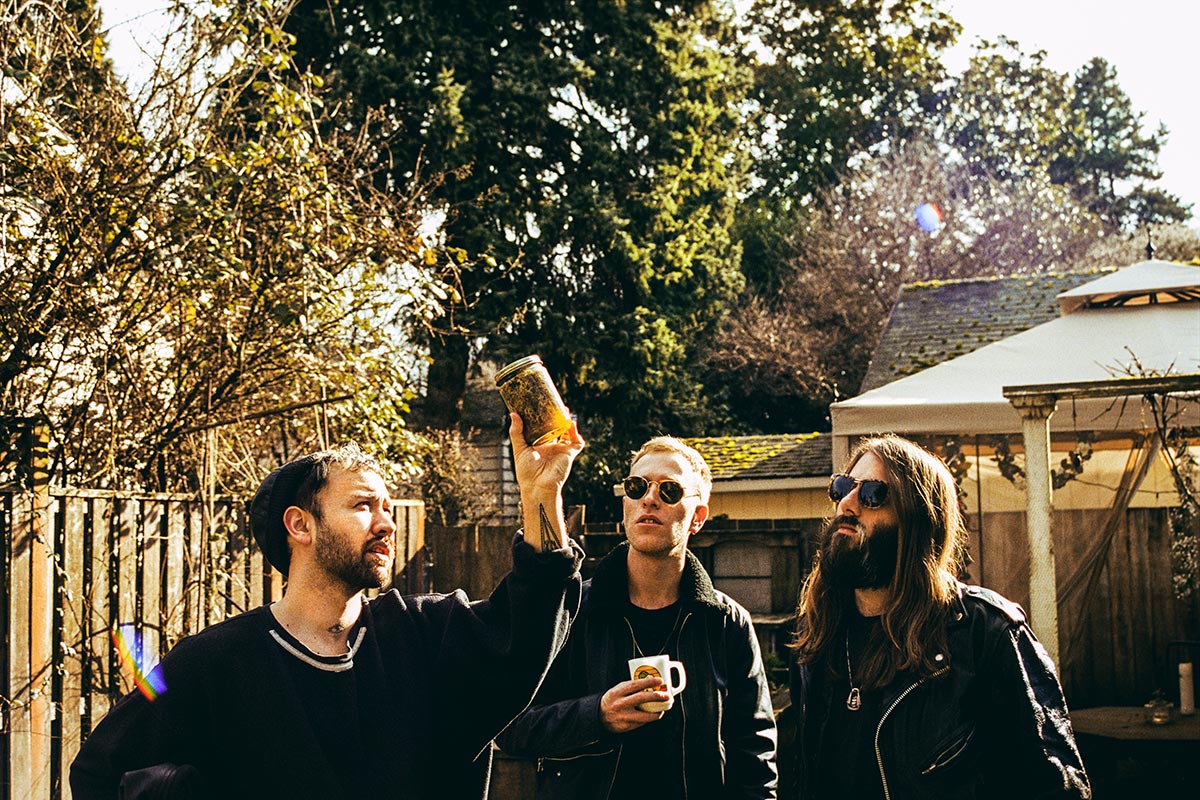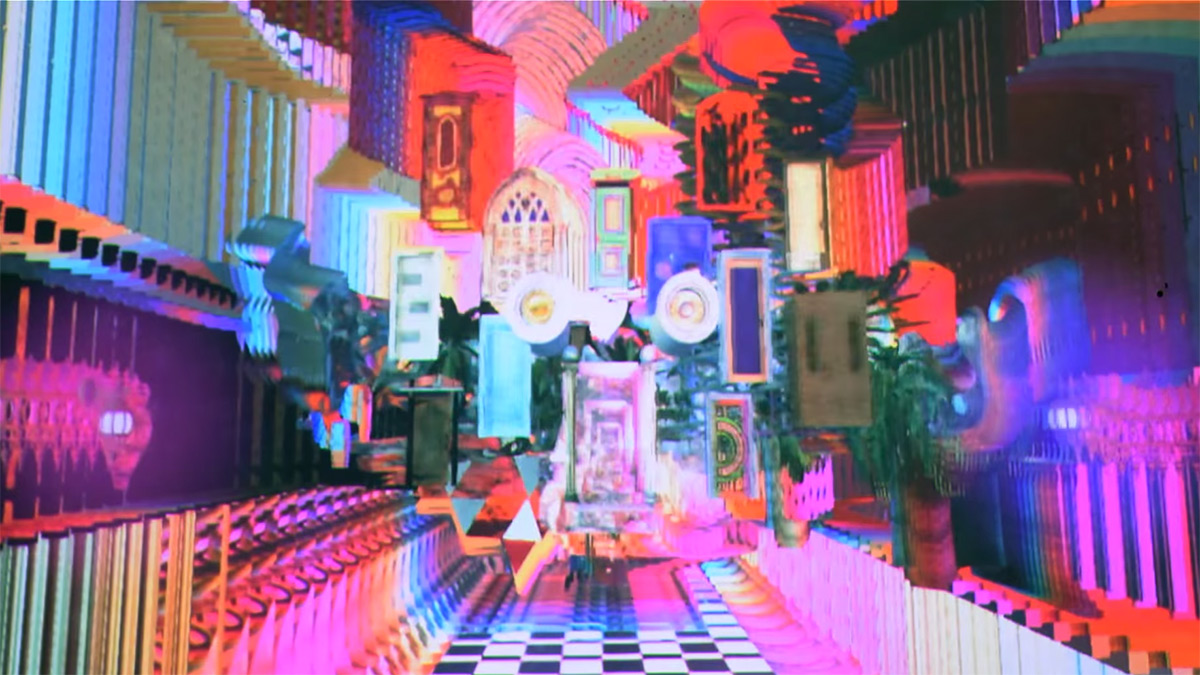Interview: Ruban Nielson of Unknown Mortal Orchestra
On his fondness for skulls, how polyamory intertwined in music and life, and what makes a record important

On their first two albums, Portland-based Unknown Mortal Orchestra charmed fans with dirty low-fi tracks—poppy but unafraid to be thought-provoking—recorded out of a basement studio. Their third and latest effort, Multi-Love (out now via Jagjaguwar) was born in the same basement studio, but from the ashes of exhaustion, depression and too many drugs. Like a phoenix reborn in explosive sheen of disco and R&B and analog synthesizers, Multi-Love exudes an energized maturity and complexity. From the deluge of new releases this year, it stands out as each lyrical and musical gesture, down to its atom, tugs on a personal level.

When New Zealand-born songwriter and UMO visionary Ruban Nielson (who played alongside his brother Kody in the band The Mint Chicks for almost a decade) least expected it, love fell into his lap. This polyamorous relationship between him, his wife and a third party—a tale with a beginning and end chronicled in a recent Pitchfork feature—provided much of the inspiration for the album (“It’s not that this song is about her / All songs are about her”). The private has manifested itself into the public through Nielson’s voice and it’s relatable as it is danceable.
We spoke with Nielson over the phone, while he prepped for a show in Minneapolis later that night, and discussed his fondness for skulls and his thoughts on production as an artist’s tool.

The album art for Multi-Love is a photo of your pink-lit basement—I wanted to know the story behind the two skulls on the shelf.
The gold one and the crystal one—one was a gift from my wife and one was a gift from my girlfriend. Whenever people get me a gift… I have a lot of different animal skulls, sugar skulls; there are a lot around the house. In New Zealand, I have a human skull. Somebody found it on the beach there; my wife’s grandfather found it when he was a kid—they’re farmers—and that whole area where they live is where there were a lot of wars and stuff there. Who knows: somebody died in a battle, got killed on the beach. And now I have it. It’s weird because I’ve had all these skull sculptures and this is actually really important. There’s something really sacred about this, I can’t just display it. It’s not scary or morbid to me. It reminds you of where you’re going.
And where are you going now?
I think I’m going to Hawaii. That’s the next thing. It might take a little while to get there. My mom’s from Hawaii and I have a lot of family there. The next album, a lot of it will be made there. It might be something really important that I have to go do.
Do you surf at all?
I’m not like that at all. Because I’m from New Zealand and half-Hawaiian, you think I would be a surfer, but I have a pretty “inside” body. It’s going to be really funny to be there. How do I deal with Hawaii? It’s not compatible with my personality.

Have you been writing new material while on the road?
If things come to me, then I’ll make sure I record them. I don’t try to force myself to write on the road. I have a song “The World is Crowded”—there are all these restaurants in this album: places I’ve been, places I go. I thought it would be interesting to have specific locations talked about on the record and places you can actually go.
Yes! I noticed Uchiko restaurant in the lyrics of “Multi-Love” and Robot Restaurant in “The World is Crowded.”
The whole song started with the phrase “the world is crowded.” That came to me when I was in Shanghai. This place is so futuristic and the phrase was so simple yet
it’s such a straightforward thing, and no one’s ever written a song with it. Sometimes that’s the hardest part. I can write melodies and chords all day but one central idea that’s really strong—I don’t like having to add that in afterwards, so I start with a thought that comes to me really strong and flesh it out later. I just collect things.
Like the way you collect skulls?
More like I collect pieces of songs. They just come to me from somewhere. They might be five chords and certain collection of notes and I might sing them into my phone. Folders just fill up and fill up and there’s a process of going through them
putting them into family groups. They might be a bunch of lyrics, they might be kinds of thoughts that I had about one specific relationship or one place that I’ve been. I like sewing them together to make them into a song and not having to force myself to come up with ideas. I like having strong stuff in my folders to build stuff out of that.

What was your songwriting process like for “Multi-Love”? I’m curious to know if you wrote it while your girlfriend was still living with you and your wife, or afterwards, when she left?
I finished the song right before she left. I started the song before any idea of a polyamorous relationship had come into my life. “Multi-love” was the first lyric I had for the album. It was like one phrase that came to me; at first I thought it was related to the Beatles—futuristic Beatles, all you need is love, but a multi-tool that related to the Beatles. Love with a capital L. I thought it was a funny, hippie idea that I liked. Later, it was this kind of mind-blowing [experience]—like, ‘Oh my God, it’s happening to me.’ Multi-love is actually happening to me.
I really wanted this song to be a special kind of love song, a new kind of love song—that was my whole plan. There were certain gaps in the lyrics and this song [became] about this thing that’s happening to me. So I couldn’t finish the song; I had the song 80% finished and couldn’t [until this experience happened to me]. That’s why I love music so much. If you start an idea and follow it down the rabbit hole, there are all these adventures. I think people who are cynical don’t understand how crazy [the songwriting process] is.

You’ve created an entire album of music about this polyamorous experience, but what has been its real life ramifications for you?
In the end I think, it strengthened my relationship and made me understand why I love my wife. It brought me back to where I already was. [I learned] you could never appreciate someone too much. The reasons we’re two people in the relationship now are not taken for granted. Sometimes I wonder about polyamory as a symptom of greed, if it was just that I was getting caught up in America and got caught up in more money, more love. I don’t think it’s really that. I think the events just happened—let it happen. I felt like it was something related to the record that I was making, that I was like, this is supposed to happen. I just didn’t know where it was going to go.
So much attention has been paid in the production of Multi-Love, which you did yourself. How do you view production as an artist’s tool?
No matter how cheaply something is recorded, if it really has that spark of inspiration, it’s going to communicate directly to people.
When I first started, I was like, “I’m going to make a more hi-fi album.” Multi-Love in the end actually ended up being less focused on that than the beginning.
I went back to my old records, and what makes the record important—really it’s the song, the soul of the songs. The content of the songs is the most important. The production is just a frame, a way of presenting it to people. It’s low on the priority list. It opens a few more doors. No matter how cheaply something is recorded, if it really has that spark of inspiration, it’s going to communicate directly to people. Over time, predicting something will only obscure that. I was thinking about that a lot. I didn’t want production to get in the way of emotion—not producing the soul and vibe out of the record. I think it helped.
If I had to go back to one microphone, I would still have the priority of communicating directly. Just communicate something real in the most direct sense, and production and sound quality really factor into that. It’s like a cup holder in your car. It’s nice to have a cup holder, but you don’t need it there. It’s an extra sheen.
Catch UMO on tour as they finish up their US leg this summer and head to Europe in the fall.
“Multi-Love” music video screenshot courtesy of UMO, all other images courtesy of Dusdin Condren












